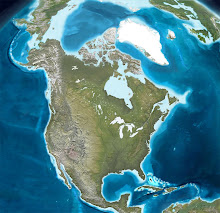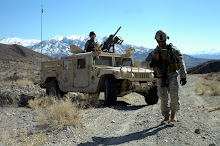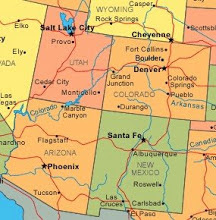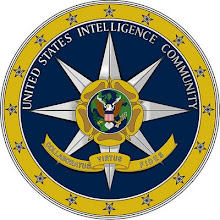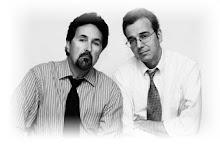By Steve Hammons
(This article was posted on the
CultureReady blog of the U.S. Defense Language and National Security Education
Office dated 8/5/15.)
On Sept. 21, 1987, then-U.S. President Ronald Reagan gave an address to
the United Nations General Assembly. In an often-quoted section of his speech,
Reagan asked rhetorical questions and commented about the nations and cultures
of the world uniting in common efforts to live in peace and avoid wars and bloodshed.
“Cannot swords be turned to plowshares? Can we and all nations not
live in peace? In our obsession with antagonisms of the moment, we often forget
how much unites all the members of humanity,” Reagan said.
“Perhaps we need some outside, universal threat to make us recognize
this common bond,” Reagan continued.
“I occasionally think how quickly our differences worldwide would
vanish if we were facing an alien threat from outside this world. And yet, I
ask you, is not an alien force already among us? What could be more alien to
the universal aspirations of our peoples than war and the threat of war?”
In these statements, Reagan seems to be noting that in addition to
the diverse cultures and societies around the world, we should also keep in
mind the larger human culture. And despite conflicts and wars throughout human
history to the present day, this larger human culture has many unifying
elements.
UNIFIED HUMANITY
Among these are the major accomplishments of humanity, including
the survival of our human species on this planet over hundreds of thousands of
years. The development of agriculture, language, education, art, music and
technology are common to most human cultures.
Reagan urged us to see the big picture – “how much unites all the
members of humanity.” He warned us to take the long view instead of “our
obsession with antagonisms of the moment.”
Of course, the nations of the world already engage in significant cooperation
on many levels. These include efforts to improve trade and economic prosperity,
share cultural resources and viewpoints, protect global public heath, and respond
to disasters and humanitarian challenges.
Yet, there is room for significant improvement in how nations and
cultures interact, and how individual humans treat one another.
These conflicts, of course, are not just between countries and
cultures. Within the many nations and cultures on Earth, we often see internal
conflict and strife when people within a society are divided and angry about
real or perceived injustice, oppression, ethnic and religious differences or
some other cause.
In his address, Reagan theorized that these many sources of
discord and conflict around the world “would [quickly] vanish if we were facing
an alien threat from outside this world.” And, he put forth the idea that, “Perhaps
we need some outside, universal threat to make us recognize this common bond.”
Was Reagan correct? Would certain adverse developments help bring
the human race together? Would the human race unify in the face of a
devastating impending meteor strike, severe global disease pandemic, worldwide natural
disaster or other threat?
THREAT OR BREAKTHROUGH
Reagan appeared to hold an optimistic view of humanity. He seemed to indicate
that he felt the human race would pull together in greater unity in the face of
a larger danger. As a result, a greater awareness about what we have in common
as humans would help us overcome the perpetual wars, death and destruction that
have been a large part of the experience of the human race on Earth.
Implicit in his speech, the former president told us that we have
the potential to transcend these destructive behaviors and seize opportunities
to focus on unifying instincts, developments and events.
Would it really require “an alien threat from outside this world”
for the people of Earth to make significant progress toward peace and
prosperity instead of perpetual conflict?
Or, might we stumble on this truth without an impending disaster?
Can we reach a tipping point when it becomes evident and obvious that our “universal
aspirations” are more important and fundamental than war and destructive
competition?
Instead of “an alien threat,” what if a positive kind of
development emerged? Such a development could include scientific discovery of a
remarkable nature or a change in global human psychology and consciousness.
Instead of Reagan’s concept of an “outside, universal threat,” what
might happen if there was an inside, universal breakthrough that takes the
human race on to the next levels of our development?
(Related
article “Storytelling
affects human biology, beliefs, behavior” is posted on the
CultureReady blog, Defense Language and National Security Education
Office, Office of the
Undersecretary of Defense for Personnel and Readiness, U.S. Department of Defense.)






























